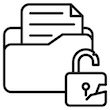
CESVI Mexico
Breach Details
Description
We've been tracking a worrying trend of older breaches resurfacing on popular hacking forums, often years after the initial incident. These "recycled" breaches, while not new, still pose a significant risk as users may have reused credentials across multiple platforms. We recently came across one such instance involving data from **CESVI Mexico**, a road safety consultations platform. What really struck us wasn't the size of the breach, but the fact that the passwords were stored in plaintext, a practice that should have been retired years ago. This indicates a significant lapse in security practices at the time of the incident and highlights the long tail of risk associated with legacy systems.
CESVI Mexico's 2017 Breach Resurfaces with 11K Plaintext Passwords
In **July 2018**, a data breach at **CESVI Mexico** exposed over **11,000** unique records containing email addresses and, critically, plaintext passwords. The breach itself occurred nearly a year prior, on **July 28, 2017**. The data resurfaced recently after being shared on a prominent hacking forum known for trading in leaked databases and credential stuffing lists. The simplicity of the breach – storing passwords in plaintext – is particularly concerning, suggesting outdated or inadequate security measures were in place at the time. This incident serves as a stark reminder that even older breaches can have a significant impact if the compromised data remains valid and exploitable.
The breach caught our attention due to the plaintext passwords. While many older breaches involve hashed passwords (even if using weak algorithms), finding plaintext credentials is rare and points to a severe security oversight. This significantly increases the risk of account compromise for affected users, as attackers can immediately use the exposed credentials to access other online accounts. This matters to enterprises now because these exposed credentials may be reused by employees on corporate accounts, creating a pathway for attackers to gain unauthorized access to sensitive company systems. This breach is a case study in how seemingly small or old breaches can amplify into significant enterprise risks through credential reuse and highlights the importance of continuous monitoring for leaked credentials.
Key point: Total records exposed: 11,283
Key point: Types of data included: Email Address, Plaintext Password
Key point: Sensitive content types: Plaintext Passwords
Key point: Source structure: Database
Key point: Leak location(s): Prominent hacking forum
Key point: Date of first appearance: July 28, 2017 (breach), July 2018 (public sharing)
External Context & Supporting Evidence
While there's limited mainstream media coverage of the original **CESVI Mexico** breach, the practice of storing passwords in plaintext has been widely condemned by security experts for years. For instance, OWASP (Open Web Application Security Project) has consistently listed storing passwords in plaintext as a critical security risk. Furthermore, the resurgence of older breaches on hacking forums is a known phenomenon. Threat actors often collect and trade these databases for credential stuffing attacks, which automate the process of trying compromised credentials on other websites and services. This is a common tactic used to gain access to user accounts and steal sensitive information.
Leaked Data Types
Email · Address · Plaintext · Password


/includes/qr-code.png)